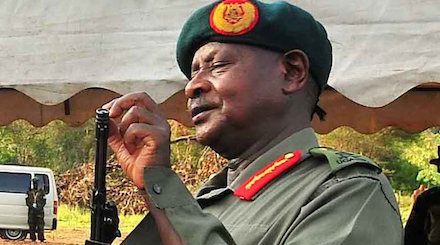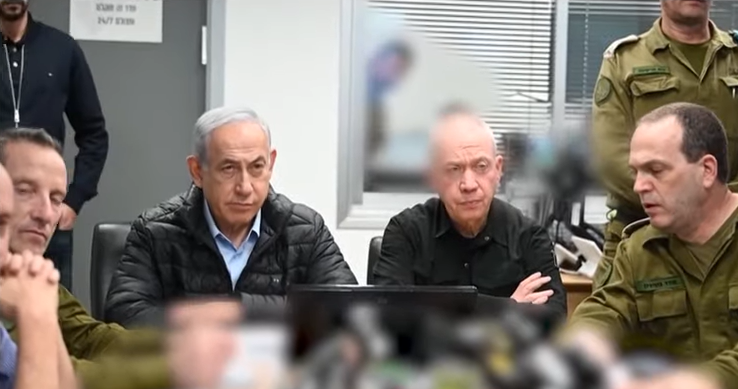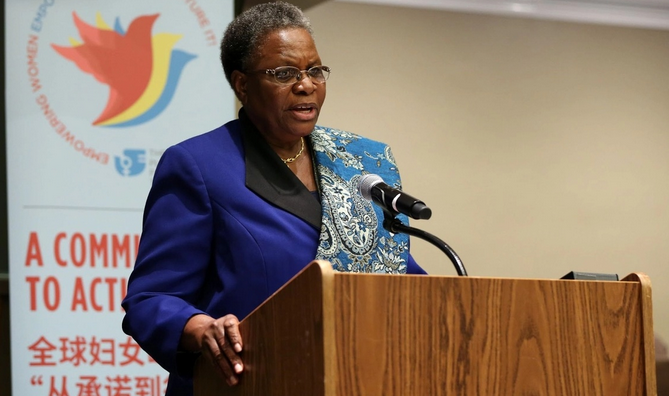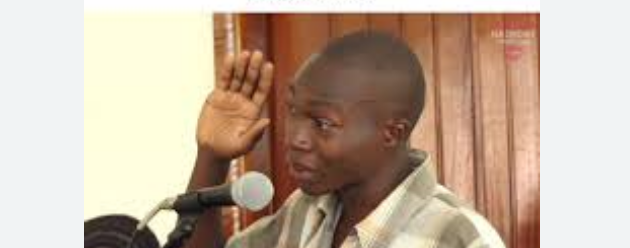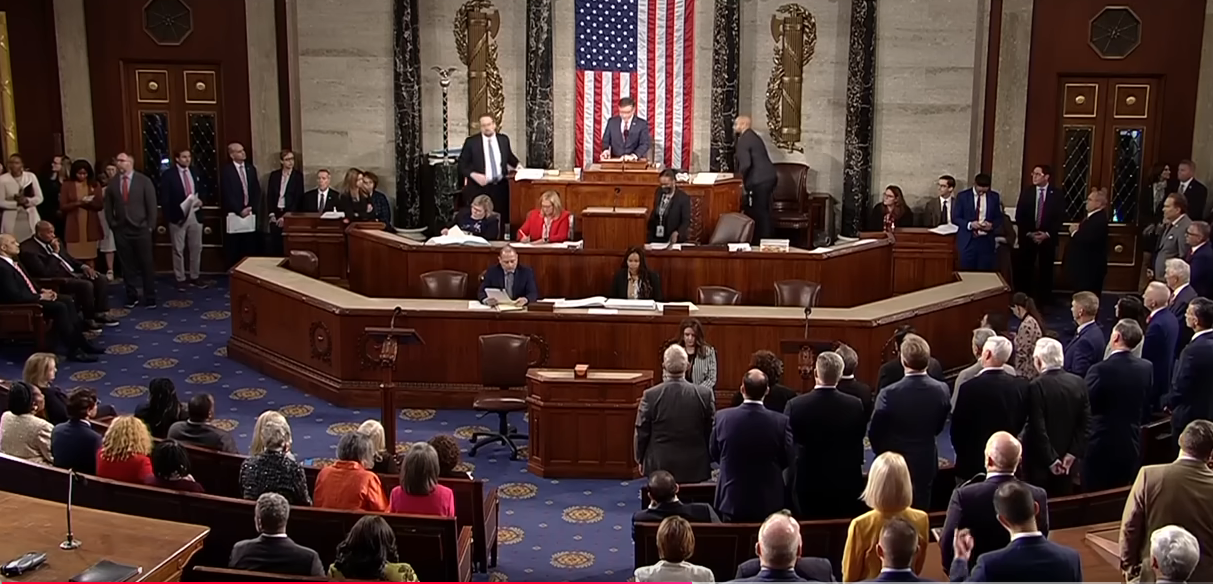Dictator Museveni. A terror campaign of abductions and murders has escalated since the Jan. 14 vote.
A successful sustainable criminal enterprise is always sustained by a false narrative. Bringing this enterprise to an end begins with unraveling the falsehoods.
The Daily Monitor of March 24, 2021 claimed “Ugandans, MPs call for reforms as Parliament marks 100 years.” Uganda’s Parliament is not 100 years old. To argue that Uganda Parliament is 100 years is to falsify history by the National Resistance Movement (NRM) military dictatorship under Gen. Yoweri Museveni.
The first Parliament was established in 1996 pursuant to the NRM imposed 1995 Constitution of the Republic of Uganda. Since then, at every Parliament reconstituted after flawed elections, the NRM and its army the National Resistance Army (NRA) was allotted, by the Museveni-appointed Electoral Commission, more than two-thirds of Members of Parliament (MPs).
Critical decisions on governance are decided by the NRM/NRA Parliamentary caucus, or the Central Executive Committee (CEC) outside the National Parliament, to which the decisions are submitted to be rubber-stamped. The Speaker and her Deputy are members of the NRM/NRA Parliamentary caucus and CEC. Significantly, NRM/NRA-controlled Parliament has failed to protect Uganda citizens. Since the January 14 Presidential and Parliamentary elections, for examples, thousands of Ugandans have been arrested, disappeared or extra-judicially executed. Yet, Parliament has not been summoned by the Speaker to discuss State murders of citizens.
In contrast, as a diversionary tactic, the NRM/NRA Parliament now presents a false narrative that it is celebrating 100 years of Uganda Parliament. That is a lie similar to other falsehood Gen. Museveni has propagated for his benefit and the NRM/NRA military government. Uganda’s Parliament is not 100 years old. For the record, the Uganda Legislative Council (LEGCO) pursuant to the Order-in-Council of 1920 was established in 1921 and all its members were white Anglo-Saxon Protestant Anglicans appointed by the colonial Governor and purported to function as parliament of the Uganda Protectorate. Its first meeting was held on March 23, 1921.
The membership of the LEGCO remained white until an Asian was appointed in 1926 and another one in 1933, by the colonial Governor. There was no African representation in the LEGCO. The colonial Governor, the appointing authority, considered Blacks too inferior to understand and appreciate the complexity of legislative drafting and the functions of the LEGCO.
In terms of legislative powers, the LEGCO was a fully blown dictatorship and functioned more or less as an advisory body to the colonial Governor. The LEGCO could not enact laws that contradicted any provision of the 1900 Buganda Agreement. In that sense, the kingdom of Buganda was gradually emerging as a state-within-a state, although legally it remained part of Uganda Protectorate.
The first Black members of the LEGCO were not elected, but appointed, by the colonial Governor in 1945. However, Black representation in the LEGCO was meaningless because the body had no real legislative powers, or authority to check the Executive—the Colonial Government. Real power was exercised by the Colonial Governor in the name of Her or His Majesty’s Government. In practice therefore, the LEGCO was nothing more than a special club with lots of benefits and no real power or relevance except to endorse the governor’s agenda, much like the contemporary Parliament, and Presidential Advisors, have functioned for Gen. Museveni.
The LEGCO, in theory carried out the functions of Parliament. In practice, important matters of governance remained in the hands of the Colonial Governor as representative of the British Empire. For example, (i) the British Government had the power to disallow any Ordinances (laws) passed by LEGCO; (ii) No Ordinances passed by the LEGCO could conflict with the 1900 Buganda Agreement (iii) All Ordinances passed by the LEGCO required the assent of the British colonial Governor; (iv) The LEGCO did not have any power to rule on constitutional matters, defense, and foreign affairs. These were all matters reserved for His or Her Majesty’s Government. Queen Elizabeth succeeded her father, King George VI, on February 6, 1952).
The first direct elections of Black representative members to the LEGCO were scheduled for October 1958. However, the elections held were limited to 10 constituencies and therefore most parts of Uganda Protectorate were unrepresented in the LEGCO. The constituencies for the 1958 elections were as follows: (i) Twelve seats were reserved for Blacks and members were to be directly elected, representing various parts of Uganda, except Ankole where their member was to be indirectly elected by the District Council; (ii) Bugisu refused to participate, hence the colonial authority appointed a Black man to represent Bugisu; (iii) There was provisions for five reserved seats for Buganda, but the kingdom of Buganda boycotted the elections and therefore did not participate; (iv) Karamoja was not represented; five seats were for the rest of western, eastern and northern Uganda Provinces; and (v) six seats were reserved for whites and another six seats reserved for Asians. The white and Asian members were to be nominated by the colonial Governor and their total numbers equalled those of all Blacks elected representatives.
The British colonial authority’s policy of divide—conquer—and—rule began to face serious challenges when the colonizer realized that the 1958 elections to the LEGCO would be a flop for a number of reasons. First, the largest minority group, the kingdom of Buganda, and the smaller community, Bugisu, boycotted the elections although the Governor purported to appoint a representative for Bugisu. Second, Karamoja was not represented, and Ankole was not granted direct elections. While whites and Asians were nominated rather than elected by people, the entire process of representation to the LEGCO was insufficient to address Uganda’s demands for independence. At this stage in 1958, no reasonable Black Ugandan can today argue that the country had a Parliament.
Due to the failure of the 1958 elections, on February 4, 1959, a Constitutional Committee on self-government, not full independence, of Uganda was set up by the Colonial Governor, Sir. Frederick Crawford. The Committee was chaired by John V. Wild and has since been known as the “Wild Committee.”
The Committee was composed of 11 Blacks, three whites, and two Asians. The terms of reference was “to consider and recommend to the Governor the form of direct elections on a common role of representatives of the Legislative Council to be introduced in 1961, the number of representative seats to be filled under the above system, their allocation among the different areas of the Protectorate and the method of ensuring that there will be adequate representation of the Legislative Council for non-Africans.”
For the avoidance of doubt, the colonial Governor made it clear to the Constitutional Committee that “the size and composition of the LEGCO and also possible size of the Government…are matters on which a very special responsibility lies directly in the hands of Her Majesty’s Government and cannot be settled in Uganda.” The members of the Wild Committee were, to that extent, prohibited from considering the “size and composition of the government” effectively rendering the Committee irrelevant for the purpose of recommending establishment of self-government for Blacks in their country.
Thus, race and racism was an important factor in the colonizer’s decision making process with respect to attainment of independence. Reference to “methods of ensuring that there will be adequate representative of the Legislative Council for non-Africans” was meant to guarantee continued white domination and disproportionate representation of Asians in the LEGCO notwithstanding that the body had no real power. The real political power was with the colonial Governor and Her Majesty’s Government. Appearance that the whites were in charge, even of an impotent nominal legislative body, was important symbolism to demonstrate White Supremacy to the general public in Uganda. Blacks had to be seen chaperoned and guided by the whites because Africans could not to be trusted exercising power on their own. Asians were used as a buffer between Blacks and whites.
On December 5, 1959, the Wild Committee submitted its report to the Governor. The following key non-binding recommendations were made: (i) direct elections to be held in all parts of Uganda; (ii) no option should be offered to hold indirect elections; and (iii) all members of the LEGCO should be elected on a common role. The third and last key recommendation was significant because prior to this, the colonial Governor nominated all members of the LEGCO at his pleasure. The Wild Committee therefore ruled out indirect elections, nominations or appointments of members of the LEGCO by the Colonial Governor or any other institution or body.
Based on the Wild Committee Report, for the first time since 1920, constituencies were demarcated. Registration of voters started in 1960. However, only three percent of eligible voters in the kingdom of Buganda participated in the process because the Lukiiko, Buganda’s Parliament, had warned all subjects of the Kabaka not to take part in the registration process. Buganda was opposed to the core recommendations of the Wild Committee Report which sought to incorporate the kingdom in a future independent Uganda. Buganda still entertained the hope of becoming a sovereign state, distinct and separate from the rest of the Uganda Protectorate.
On March 23, 1961, the first direct elections to the LEGCO were held in Uganda in general terms under the procedure recommended by the Wild Committee but without participation of Buganda. The Democratic Party (DP), primarily supported by the Catholic Church, won the elections with 44 seats. The Uganda Peoples Congress (UPC), supported by the Protestant Church and the preferred party by the colonial government, obtained 35 seats. The Uganda National Congress (UNC) a nationalist party with no clear religious affiliation, although its membership was predominantly Protestant, obtained one seat; and Independent candidates won two seats. Buganda boycotted the elections but the three percent Buganda voters supported the DP, leading to its victory.
The elections were flawed, not free or fair. However, the colonizer appointed the leader of the DP, a Catholic, Benedicto Kiwanuka, Chief Minister and head of self-government of the Uganda Protectorate. To colonial Britain, the Black man was now in charge and the process did not matter, after all, colonial Britain never practiced democracy or organized, functional parliamentary elections, whether free, fair or otherwise. In that sense, from the very beginning, colonialism not being a democracy, the British colonialist never took the idea of a functional democracy in Uganda seriously.
Colonial Britain emphasized appearance, and not substantive democracy, as the basis of power. In that context, power did not belong to the people but to the colonial authority who manipulated the political systems. This exercise marks the beginning of election rigging as a political process in independent Uganda. The representation in Parliament, a direct result of British colonialism, was based on race, ethnic origin, and religion. Flawed as it is, the 1961 elections produced the first direct representation of Black people and in that sense the real Uganda Parliament emerged. This was a far cry from the 1921 apartheid-like LEGCO. The Uganda Parliament is therefore not 100 years old. The NRM/NRA propaganda machinery must stop propagating false narratives and obstruction of historical facts.
In 1962 the UPC formed a coalition government with Kabaka Yekka (KY) after winning the majority seats in the April elections and Obote became executive prime minister with Sir. Edward Mutesa II as president. Since that year, Uganda has always been a weak state, dependent on the former colonial power, and now the European Union and the United States despite her immense mineral wealth, natural and human resources.
However, between 1981 and 1986, Uganda was at its weakest point. During this period, Yoweri Museveni and his gangsters robbed the Uganda Commercial Bank, Kabale branch, and stole millions of Uganda shillings; they hijacked a Uganda Airline plane and forced it to land at Mbarara airport; they robbed and torched gas (Petrol) stations, especially in an around Kampala; they ambushed and murdered thousands of civilians traveling in public transport vehicles, especially on the Gulu-Kampala road. Museveni and his agents conducted targeted assassination of politicians, civil servants, and off-duty police and military personnel. These criminal practices were adopted by the NRM/NRA under the leadership of Museveni, the self-styled master of violence, as the preferred method of seizing political power.
When Museveni seized power in January 1986, these acts of criminality became NRM/NRA policy and they have continued. The senior NRM/NRA officials who organized armed robbery, hijacking, rape and murders between 1980 and 1986 became policy makers and leaders of the country. Gradually, Uganda was transformed from a weak state to a criminal enterprise. Individuals, who are publicly known to have stolen funds meant for the poor and the sick, or murdered civilians, found seats at the Cabinet, Parliament, and Judiciary. Normal practice among gangsters and criminals throughout the world is to protect each other. That’s why they see no evil or violations of civil, economic, social, and political rights of citizens. It is this policy of comradeship that partly explains why many NRM/NRA officials are silent when government murders Ugandan citizens.
The destruction of moral values by the regime has allowed criminals to run the state. Consider the judiciary, which is fully captured by the NRM/NRA cadre judges to the point where the judges can no longer be expected to dispense justice without fear or favor, ill-will or affection. Supreme Court Justice Dr. Esther Mayambala Kisaakye delivered an excellent dissenting opinion by when the court ruled to reject Presidential candidate Robert Kyagulanyi’s motion to amend his petition for the results announced in favor of Gen. Museveni to be annulled. In press statements she later claimed Chief Justice Owiny-Dollo, Gen. Museveni’s henchman, had ordered that her files be confiscated. That the Uganda Law Society would offer to identify senior advocates to mediate matters between the Supreme Court Justices is another indication of how far the judiciary has collapsed. However, a few judges, in the class of Supreme Court Justice Dr. Kisaakye, risk everything to defend the rights of Uganda citizens.
The justice system in Uganda has been destroyed. Fear of displeasing Gen. Museveni, even when he is wrong, makes Chief Justice Owiny-Dollo tremble. It is not surprising that he is now being sued for abuse of office and the Director of Public Prosecutions (DPP) has stepped in to protect him—he’s publicly known to be an NRM/NRA cadre Judge. Fear forces Justice Owiny-Dollo to present absurd reasons to justify untenable positions taken in the majority opinion rejecting Kyagulanyi’s motion to amend his petition.
The structure of the socio-economic conditions in Uganda makes individual judges, MPs, and the Civil Service senior personnel afraid to disagree with Gen. Museveni even when he’s manifestly wrong. The Opposition in Parliament exists only to legitimize the NRM/NRA regime and not to check government excesses, abuse of authority, or to play any meaningful oversight roles.
Based on the Auditor General’s Reports, Parliament regularly authorizes funds for the State House and Office of the President that are never properly accounted for. Officially facilitated and condoned kleptocracy.
The Ugandan State has become Museveni’s personal property. Facts, law and history are tweaked to sustain his ego and perpetuate falsehood. Uganda is a criminal state under the control of the NRM/NRA mafia.
Dr. Obote Odora is a Consultant
